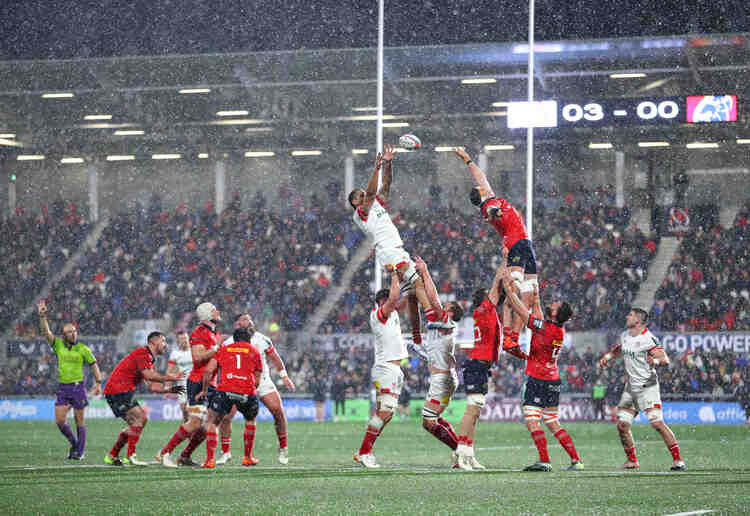I possess two what I will call here “participation medals.” One, which came down directly to me a couple of generations, was for membership of a rebel army. It was officially issued, as the rebels’ leaders by then had become democratic leaders and comprised in large measure the political class. The other, awarded to a relative by marriage of the first recipient, was for membership of a navy that was on the winning side in a World War.
Nothing about these awards suggests this pair were any different from their comrades. They volunteered as youths to serve, as did many of their friends and peers. Their medals were as much expressions of a communal effort as they were an individual recognition. Armed forces added individual decorations for gallantry and distinguished service, or for being wounded while serving, but the basic service medal was traditionally issued in same spirit that the American government enacted the GI Bill in 1944 — the benefits were the same whether someone was a mess cook or a mechanic or a frontline combatant in a fox hole. You served, you deserve.
The issue of egalitarianism, of inclusion, of equal citizenship and of communal effort doesn’t sit well with some, of course, and we might put North Carolina State Senators Tim Moffitt, Bobby Hanig and Eddie Settle in that category.
If there are some Democrats who want to take away from freedom-loving Americans their high-powered military-style assault weapons, or at least require them to register their guns, there are Republicans like the above trio who want to rip away ribbons, medals and cups from the hands of little girls and boys. They’ve proposed “An Act to Prohibit Awards In Youth Recreation Activities of Local Governments Based Solely on Participation.”
My email inbox on Easter Monday morning contained the Washington Post blurb headline, “Abnormal surge in sea levels along southern U.S. coast raises new concern about risks facing New Orleans, Miami and other cities.” It explained further that multiple new studies are highlighting a “drastic rate of sea level rise” along the Gulf of Mexico and southeastern U.S. coast, a shift that worsens flood risks and hurricane surges, and added that recent devastating hurricanes, “including Michael in 2018 and Ian last year, were made considerably worse by a faster-rising ocean.”
Folks like Moffitt, Hanig and Settle aren’t losing sleep about such things, but they are on top of and highlighting the really important issues.
Their move would involve an amendment to North Carolina’s General Statutes to the effect that, “Youth sports or other youth recreation activities operated under the authority of a local government shall not include awards for participants based solely on their participation in the sport or other activity. Awards provided in connection with the activity, if any, shall be based on identified performance achievements.”
So, if I read correctly Larry, Curley and Moe’s proposed new rules for their state, all of it, you could and should have gold, silver, and bronze medals, but you can’t add a general participation-level medal, made of a lesser material?
You couldn’t have an embossed certificate for competitors in, let’s say, a 10k or 5k run because, well, they’re mostly losers?
A Vice magazine article explained the thinking: “Hatred towards participation trophies is an ancient conservative meme. It’s typical for kids in the U.S. to get a bit of plastic or scrap of ribbon at the end of an event or game. The idea that kids should get trophies or ribbons simply for participating, and not winning, has been a popular source of anxiety and concern for 100 years. Literally.
“An op-ed in an Ohio newspaper from 1922 decried the practice of handing out trophies to anyone who showed up to play in a high school basketball tournament.”
It’s hardly a mainstream hot-button topic, though. The Vice writer, Matthew Gault, had to go back to 2015 to find a piece that looked at the issue of participation awards in any kind of detail.
CNN’s Kelly Anderson wrote then: “My girls, 7 and 9, get a trophy at the end of every soccer season. The impromptu ceremony includes a cheer for the effort of each gal on the team and then each parent trying to get a quick photo of his or her child before the kids go off and play.
“What could possibly be wrong with celebrating my girls’ effort as long as we, as parents, aren’t holding them back from making mistakes and learning from disappointments, such as losing a key game or missing a goal?”
Still, Anderson also outlined the arguments of those who say the “everyone gets a trophy no matter what” culture is possibly harming children, and cited pieces like a New York Times op-ed earlier that year entitled “Losing is good for you.”
But she also suggested that often people’s real issue wasn’t with the ribbons and trophies, but with other phenomena they associated with it like “helicopter parents.”
Anderson then offered the opinion of those who were rather more relaxed about the practice, like Mark Hyman, author of books such as “Until It Hurts: America’s Obsession with Youth Sports and How It Harms Our Kids” and “The Most Expensive Game in Town: The Rising Cost of Youth Sports and the Toll on Today’s Families,” who, she said, believes “there are many reasons to be concerned about the future of youth sports, citing a 70 percent drop-out rate for children in organized sports by 13, concussions in youth football, lacrosse and soccer, and the high cost and professionalization of sports.”
Hyman is directly quoted saying, “And 6-year-old children getting participation trophies to me is not a problem that deserves a lot of our attention or concern”
Even one of the participation-trophy skeptics quoted, Ashley Merryman, the co-author of “Top Dog: The Science of Winning and Losing,” according to Anderson’s summary of her stance, didn’t see this as an “‘either/or conversation’ and believes parents’ strong feelings about participation trophies can perhaps lead to more conversations about youth sports in general, including how many sports kids are playing and the mental and physical impact of today’s sports culture on our kids.”
So, it’s complicated. But not to Messrs. Moffitt, Hanig and Settle. Keeping it simple is key when advancing the culture wars. And based on performance, they should be awarded, and indeed probably will be by the special interests and the lobbyists, with medals made of pure gold. Equal first place.








